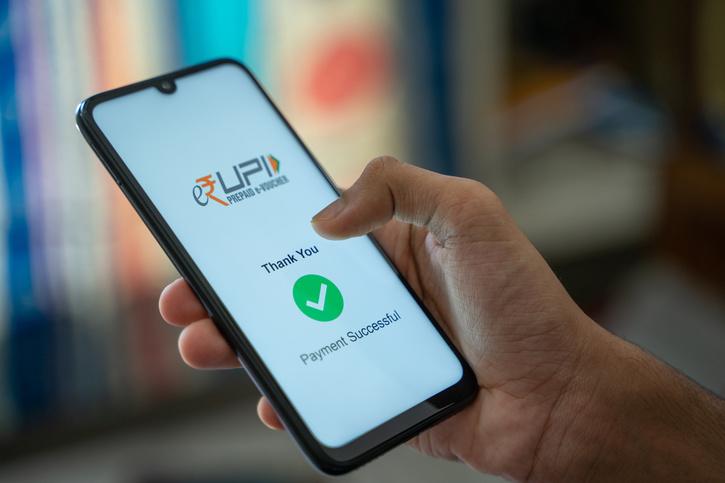New
Delhi: The government has said no charges would be levied for UPI transactions
in response to reports that UPI payments were being levied at per-transaction
rates. High-value transactions would, however, attract a cost of up to 0.25% of
the transaction value, the RBI said in a statement.
Indian
banks have been charging users for making UPI payments. While there is a
transaction fee of Rs. 0.50 for payments made through non-Internet Banking
channels, the charge was reportedly being levied at Rs. 5.00 for payments made
through Internet banking channels. However, the government has said that no
charges would be levied for UPI transactions in response to reports that UPI
payments were being levied at per-transaction rates.
Charges levied by MobiKwik for
UPI transactions
Charges
levied by MobiKwik for UPI transactions have been in the news recently, and the
government has said that no charges would be levied for UPI transactions in
response to reports that UPI payments were being assessed at per-transaction
rates. The government has also stated that it is looking at ways to bring down
the merchant discount rate that payments banks can charge. This blog will look
at these charges and rates and how the government hopes to bring them down.
Recent reports have stated that UPI
transactions have been charged at a fee of 1-3.99% per transaction basis. In
response to these reports, the government has now indicated that anything below
or equal to Rs. 1 is not a chargeable amount for the merchants, and no charges
will be levied for payments through the UPI. The RBI, which is the regulating
body for UPI, has also stated that per-transaction accounts are not allowed.
The
government has said no charges would be levied for UPI transactions in response
to reports that UPI payments were being levied at per-transaction rates. The
Central Government clarified its stance against reports claiming it might levie
extra charges on UPI payments. While clarifying that the government is not
considering any charges for services on UPI transactions, the Finance Ministry
has reiterated its support for the continued uptake of the digital payments
system.
The clarification came in the wake of
speculations that UPI transactions
The
clarification came in the wake of speculations that UPI transactions might
require additional charges for maintaining payment infrastructure. Said came
amid speculations that UPI transactions might demand an additional charge, with
the discussion paper released on Aug.17 by the Reserve Bank of India (RBI)
seeking comments related to this issue. After the Reserve Bank of India (RBI)
rescued a discussion paper last week on charges in payments systems, the
finance ministry on Sunday clarified that the government is not considering
charging for Unified Payments Interface (UPI) services.
The Reserve Bank of India (RBI) sought the
opinion of the public and stakeholders of the industry through the discussion
paper on amending the policies that regulate charges on various payment
mechanisms such as Unified Payments Interface (UPI), IMPS (Instant Payment
Service), NEFT (National Electronic Funds Transfer), RTGS (Real-Time Gross
Settlement), Debit Card, Credit Card, and Prepaid Instruments. RBI is exploring
opportunities for recovering costs from its extensive investments and operating
expenses in the payments systems, regulation of interchange fees, and
imposition of a per-transaction fee on debit card transactions, as well as the
imposition of charges on funds transferred using the Unified Payments Interface
(UPI). The Reserve Bank of India (RBI) has invitation public opinion for
various changes proposed to the payments system, including the possibility of
charging tier-based fees for transactions conducted via the Unified Payments
Interface (UPI).
The clarification comes after several
media reports
The
clarification comes after several media reports claimed that the latest paper
by the RBI, entitled Discussion paper on charges in payment systems, had a slew
of literature suggesting RBI was considering adding charges on every financial
transaction done via UPI. The Discussion Paper covers all aspects related to
charges in payment systems like Immediate Payment Service (IMPS), National
Electronic Funds Transfer (NEFT) System, Real-Time Gross Settlement (RTGS) system,
and Unified Payments Interface, as well as the different payment instruments
like Debit Cards, Credit Cards, and Prepaid Payment Instruments (PPIs). As
announced in its December 08, 2021, Development & Regulatory Policy
Statement, Central Bank has released a Discussion Paper on the changes in
Payment Systems to seek public opinion, the RBI said in a statement.
The
finance ministry issued an explanation on August 21 about reports that charges
were levied for UPI payments and said the government would not levy additional
charges for UPI payments since it is a digital government service intended to
better function the economy as well as to facilitate transactions for the
public. The Reserve Bank of India, in its conversation Paper, said the
government had prescribed a zero-charges facility for transactions through the
Unified Payment Interface with effect from January 01, 2020.







No comments:
Post a Comment
Thanks For Your Feedback